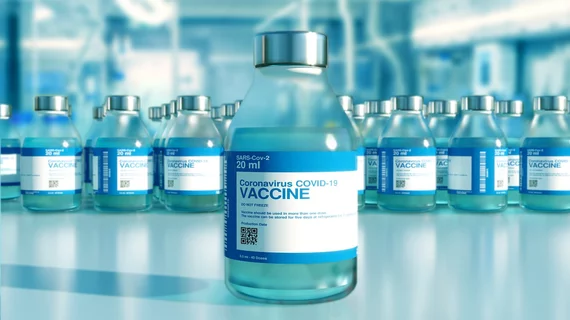30% of healthcare workers in U.S. hospitals are unvaccinated, large-scale analysis reveals
Nearly 30% of healthcare workers across the U.S. are still unvaccinated, according to a new study spearheaded by the Centers for Disease Control and Prevention.
While vaccination rates ballooned from 36% to 60% in the four-month period between January and April of this year, they soon tapered off, reaching 70% by September.
The data, which includes 3.3 million healthcare personnel (HCP) across more than 2,000 American hospitals, was published Thursday in the American Journal of Infection Control. Those involved say it’s the most comprehensive study of its kind to date.
“Our analysis revealed that vaccine coverage among U.S. hospital-based HCP stalled significantly after initial uptake,” lead author Hannah Reses, MPH, a member of the CDC team that conducted the analysis, said in a statement. “Additional efforts are needed now to improve HCP vaccine coverage and reduce the risk of SARS-CoV-2 transmission to patients and other hospital staff.”
The findings are based on information voluntarily submitted to the HHS Unified Hospital Data Surveillance System on COVID-19 vaccination between January 20 and September 15, 2020. Out of more than 5,000 care centers in the system, 2,086 offered up their vaccination rates.
Healthcare workers employed at children’s hospitals recorded the highest uptake rates (77%), followed by short-term acute care hospitals (70.1%), and critical access hospitals (64%).
Additionally, workers employed by institutions situated in metropolitan counties had the highest vaccination rates (71%) compared to rural (65.1%) and non-metro rural counties (63.3%).
“Hospital-based HCP play a critical role in influencing community uptake of vaccines and are also at increased risk of both acquiring and transmitting COVID-19 in healthcare settings,” said Ann Marie Pettis, RN, president of the Association for Professionals in Infection Control and Epidemiology. “The findings from this analysis suggest that vaccine mandates as well as investment in additional educational and promotional activities could help increase vaccine coverage among HCP to better protect public health.”
The Biden administration finalized a policy in November mandating full vaccination for any healthcare workers employed at facilities participating in Medicare or Medicaid. The emergency order went into effect on Nov. 5 and applies to some 76,000 facilities and 17 million workers across the U.S.
Soon after the order, 10 states filed suit against the administration, calling the mandate “misguided” and expressed concern the regulation would contribute to widespread workforce shortages across medicine.

